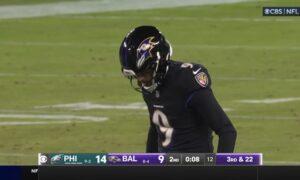In yet another sign of the times, it was reported yesterday that the NFL and club executives reached an agreement to raise the debt limit for all 32 teams for the 2020 season, rising from $350 million per club up to $500 million per club. The agreement, which had been discussed for weeks, is a direct response to the uncertainty facing the 2020 season and the manner in which it may be played.
The primary concern at the moment is whether or not the games will be able to be held with fans in attendance or not. According to the article linked above, it is estimated that the league would lose nearly $2.3 billion in revenue from ticket sales and in-stadium spending across the season. Weekly losses would amount to about $138 million.
All of this is, of course, because of the coronavirus, part of the process of mitigating it being the necessity to practice social distancing in order to prevent the virus from spreading. Covid-19 has proven to be more contagious than most coronaviruses, and more than was initially believed, which as required the world to adapt its protocols over the course of time.
To be clear, raising the debt limit isn’t official yet, but it’s just a formality at this point. The proposal has been agreed upon to put it to a vote at the next owners meeting, which will be held next week, virtually of course, and it’s basically unimaginable that it wouldn’t pass.
For such a widespread action to be put into place is quite rare. Under normal circumstances, a specific franchise here and there might be given a higher debt limit, for example, while they are in the process of building a new stadium, or something like that.
But we are in unprecedented times, and there is a very real economic reality to everything that is taking place, even if the steps taken are necessary. The league owners are simply protecting their interests, as would be expected.
Considering that the league has advised its teams and their representatives not to publicly discuss the future of the 2020 season to avoid speculative talk, it is notable for them to take this action, as arguably the clearest signal yet that they recognize the uncertainty of what may come down the road, even as they continue to plan for a season as normal.
Not that they shouldn’t be planning for a season as normal. We are still months away from football being played, and things should, one would hope, look much different in August and September than it has for the past couple of months.








